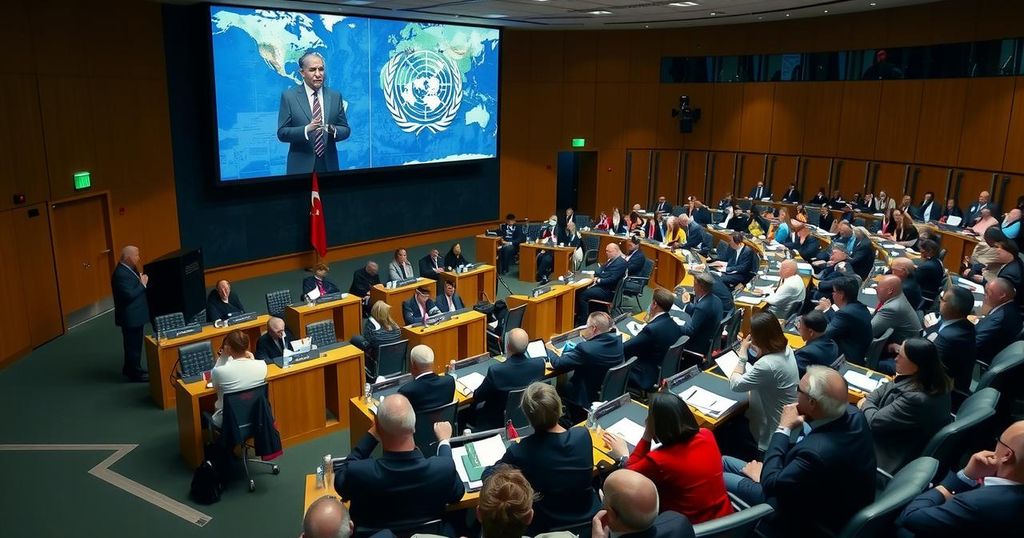During the UN climate conference, leaders from various nations shared firsthand accounts of severe climate impacts they have faced, including floods and heatwaves. The focus of the conference is on climate finance, with particular emphasis on how wealthier nations can aid poorer countries in addressing climate change. The absence of key polluting nations was noted, while the U.K. announced a more ambitious emissions reduction target.
World leaders gathered at the United Nations climate conference aimed to share their personal experiences of climate change impacts. Croatian Prime Minister Andrej Plenkovic remarked on the devastation caused by recent floods in the Mediterranean, emphasizing the need for urgent action. The Greek leader highlighted the need for honest discussions regarding economic trade-offs in tackling temperatures exacerbated by climate change, referencing Greece’s struggles with severe heatwaves. Prime Minister Shehbaz Sharif of Pakistan detailed his country’s experience with catastrophic flooding and extreme heat, while Bahamas Prime Minister Philip Edward Davis echoed the call for financial support to address climate-related disasters affecting poorer nations. Meanwhile, calls from African ministers stressed the importance of green development amid climatic challenges. The absence of key nations responsible for significant carbon emissions was noted, with strong economies such as the United States and China failing to send top leaders. Nonetheless, U.K. Prime Minister Keir Starmer announced an ambitious emissions reduction target of 81% by 2035. The conference proceedings are currently centered around climate finance, focusing on compensating developing nations for climate-induced damages and facilitating their transition to sustainable practices.
The United Nations climate conference serves as a platform for world leaders to convene and discuss the urgent issue of climate change and its impacts on global weather patterns. Nations affected significantly by climate-related disasters share their experiences to advocate for action and support. With a focus on climate finance, this year’s discussions emphasize the responsibility of wealthier nations in aiding developing countries, particularly those in the Global South, to adapt to and mitigate the effects of climate change. The absence of major polluting nations raises concerns about collective global action toward achieving significant climate goals.
The convening of global leaders at the UN climate conference highlights the critical urgency of addressing climate change. Disturbing personal accounts from leaders of nations severely impacted by climate disasters underscore the necessity for immediate action and support, particularly from affluent countries. As discussions focus on climate finance and emissions reduction, it becomes imperative for all nations, especially major polluters, to engage cooperatively to forge a sustainable future in light of the dire consequences of climate change.
Original Source: www.voanews.com






